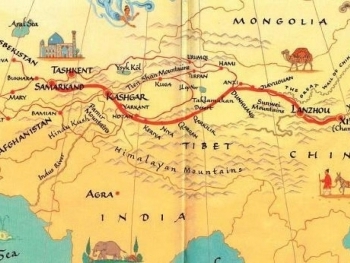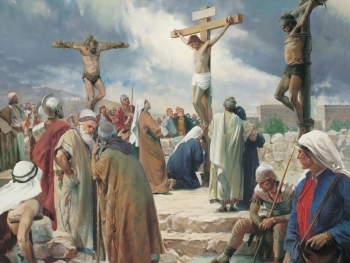
Logistics has been the spine of human progress, allowing the movement of goods, human beings, and thoughts across distances for millennia. From the historical exchange routes of Mesopotamia to the modern cross dock and warehousing solutions presented by way of FreightBox these days, the art and science of logistics has usually advanced to fulfill the wishes of growing civilizations. This publish takes you via the captivating records of logistics, its biblical connections, and the way FreightBox builds in this legacy to streamline modern supply chains.
The Beginnings of Logistics in Ancient History
The time period "logistics" may be contemporary, but the concept dates again heaps of years. Ancient civilizations like Mesopotamia, Egypt, and the Indus Valley depended on efficient structures to transport items throughout their territories.
- Mesopotamia: Known as the "Cradle of Civilization," Mesopotamia advanced some of the earliest types of exchange and transportation. The Sumerians built canals and used wooden carts and sledges to move goods together with grain, textiles, and pottery. These early innovations laid the foundation for what we now recognize as logistics.
- Egypt: The Egyptians perfected supply chain control in enormous methods. Consider the construction of the Great Pyramid of Giza, built around 4,500 years in the past. Historians estimate that nearly 2.3 million limestone blocks, each weighing up to eighty lots, were transported from quarries miles away. This big project required meticulous making plans, coordination, and hard work allocation—a logistical surprise of the ancient world.
- The Roman Empire: Logistics have become a navy art beneath the Roman Empire. The Romans built an in depth network of roads, aqueducts, and ports to make certain their armies have been properly-furnished. These roads also facilitated alternate, linking the Empire to remote regions like India and China. The phrase "All roads cause Rome" displays the performance of this interconnected system.
Biblical References to Logistics
The Bible, one of the maximum sizable historical and religious texts, also highlights the significance of logistics in ancient instances.
- Joseph’s Grain Storage: In the Book of Genesis (41:46-49), Joseph, acting beneath Pharaoh’s authority, implements a grain garage and distribution gadget for the duration of Egypt's seven years of abundance. This ahead-thinking logistical plan ensured survival at some point of the following famine. Joseph’s actions show off an early example of aid planning and stock management.
- The Exodus: The tale of Moses leading the Israelites out of Egypt (Exodus 13-14) demonstrates the logistical challenges of shifting a large institution of humans through the wasteland. From presenting food and water to making sure safe haven, this occasion underscores the essential position of agency and aid allocation in human records.
- The Ark of the Covenant: Transporting the Ark of the Covenant, as exact within the books of Exodus, Numbers, and 2 Samuel, required particular commands. The Israelites had been commanded to carry it on poles and ensure its protection at some stage in their journeys, emphasizing the sacredness of cautious handling and transportation.
Logistics in the Middle Ages and Beyond
As civilizations superior, logistics became greater state-of-the-art.
- The Silk Road: This historic alternate route linked Asia, the Middle East, and Europe, facilitating the exchange of goods, culture, and generation. Freight consolidation, akin to trendy practices, changed into obvious as investors combined smaller shipments to optimize caravan usage.
- The Age of Exploration: During the fifteenth and sixteenth centuries, European explorers like Christopher Columbus and Vasco da Gama improved international exchange routes. The transportation of spices, silk, and gold required advanced navigation and garage solutions to save you spoilage at some point of lengthy sea voyages.
- The Industrial Revolution: The 18th and 19th centuries saw the advent of railroads, steamships, and mechanized factories. These improvements revolutionized logistics, enabling quicker and extra green transportation of products over extensive distances.
FreightBox: Continuing the Legacy of Logistics
At FreightBox, we stand on the shoulders of those logistical giants. While the demanding situations of ancient logistics have been sizeable, contemporary deliver chains face new hurdles—growing expenses, complex global networks, and the want for pace and efficiency. FreightBox’s pass-docking solutions deal with these challenges head-on, offering companies revolutionary methods to optimize their operations.
- Reliable Service: Just as the Romans trusted properly-maintained roads, FreightBox is predicated on a properly-maintained fleet and professional drivers to make certain safe and timely deliveries.
- Customized Solutions: Like Joseph’s tailored grain distribution system, FreightBox’s adaptable services meet the particular needs of each consumer, streamlining logistics approaches.
- Cost Efficiency: The consolidation practices of ancient buyers discover their modern-day counterpart in FreightBox’s freight consolidation services, which maximize trailer utilization and decrease expenses.
- Technological Advancements: FreightBox leverages current generation to offer real-time monitoring, green reloading, and even pallet re-stacking offerings. These improvements echo the spirit of development seen throughout history, from the invention of the wheel to the upward push of world transport networks.
We Grow With You
Logistics is not just about moving items—it’s about fostering connections and constructing relationships. At FreightBox, we take concept from historic trade routes and biblical memories to increase our community and meet your needs. With every new location we open, we honor this wealthy records at the same time as embracing the destiny of logistics.
Let us assist you write the following chapter for your logistics adventure. Together, we’ll hold the tradition of innovation and excellence that has shaped human civilization for millennia.
Trade Routes Cross-Docking Solutions Logistics History Supply Chain Optimization Ancient Trade Routes Biblical Logistics Freight Consolidation Modern Logistics Logistics Transportation Warehouse Storage



















